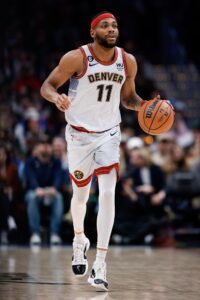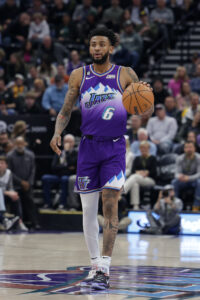The G League revamped its overtime format this season, as we detailed earlier in the week, replacing a traditional two-minute overtime period with a seven-point target score. Instead of simply tacking on another two minutes to the clock, the G League turns the clock off entirely once overtime begins, with the first team to score seven points winning the game.
ESPN’s Kevin Pelton (Insider link) suggested earlier this week that it’s a tweak we could eventually see make its way to the NBA, and John Hollinger of The Athletic wrote today about that possibility too. According to Hollinger, the rule change has received “generally positive” reviews and NBAGL staffers seem to love it.
The target score – also known as the “Elam Ending” in honor of creator Nick Elam – has been used in the fourth quarter of the NBA All-Star Game in recent years. However, as Pelton observes, it’s a better fit in overtime, since the two teams start the period tied — that simplifies the target score, since both clubs need to score the same amount of points, instead of one team needing, say, 40 points, while the other team needs 27.
Since the NBA’s overtime period runs for five minutes instead of just two minutes like in the G League, an overtime target score at the NBA level would likely have to be higher than seven points — Pelton believes that something around 11 might work.
There would be some drawbacks if the NBA instituted such a change. We’d lose the drama of double- or triple-overtime games, and there would be no possibility of a game ending on a buzzer beater.
However, coaches and front offices may welcome the elimination of those double- or triple-overtime contests, which can result in top players playing huge minutes. With teams more concerned than ever about managing players’ workloads, they could favor the relative certainty of the target-score ending.
As for the lost buzzer beaters, it’s worth noting that the Elam Ending requires every game to end on a made shot, so if the score stays tight throughout overtime, there should still be plenty of excitement in end-game scenarios.
There would likely still be plenty of anticlimactic endings, with games ending via a free throw or by one team pouring in 11 points before the other team has scored more than a basket or two. But that’s an issue with the current overtime format as well.
We want to know what you think. Our poll below simply asks whether or not the NBA should adopt the Elam Ending for overtime, but if you have suggestions for potential variations (perhaps a standard five-minute overtime period followed by a target score in double overtime?), we want to hear them.
Vote in our poll, then head to the comment section below to share your thoughts!
 2022/23: $6,479,000
2022/23: $6,479,000